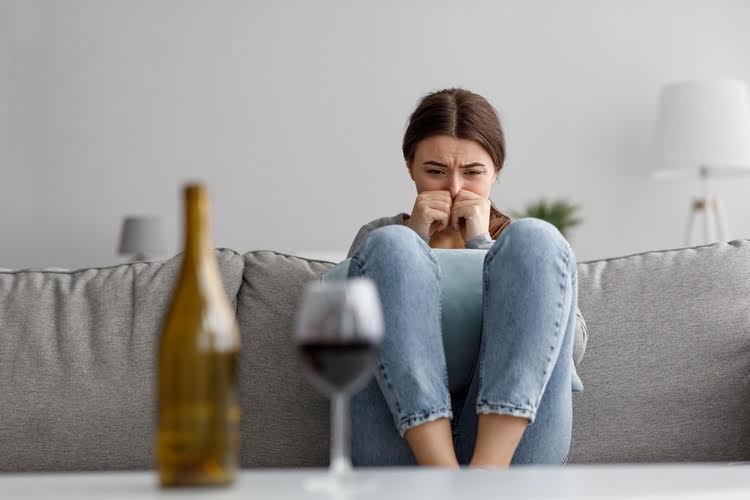目次
If you’ve suffered a relapse, it’s important to look at this event as a learning experience. You’re now better equipped to handle your recovery and achieve success, because you know what not to do and what to look out for. If you can demonstrate to those closest to you that you are making an effort to include them in your recovery, then you will start to feel more motivated to continue.
- Or perhaps you might benefit from therapeutic approaches that differ from those utilized in the rehab facility at which you stayed.
- Thankfully, there’s a step-by-step process that can help you do just that.
- Once you have reflected on the experience of relapsing you will have better scope to predict challenges you will face in the future.
- When you work with your sponsor to begin your steps to recovery once more, it can seem like you are starting all over.
- One of the most important ways to prevent and treat a relapse is through social support.
- Many addicts are likely to turn to coping mechanisms when dealing with stress.
The important part is to reestablish contact and let them know you’re struggling. Getting appropriate treatment for co-occurring mental health and medical conditions can also help reduce your risk of relapse. Relapse prevention therapy (RPT) was developed over 40 years ago by G. This approach helps people in recovery anticipate the factors that might cause them to engage in their addictive behavior again—and to plan ahead for these situations. Accepting that relapse is a normal part of the process of recovery is a more helpful way of looking at relapse. Individuals and treatment programs that take this view are more successful, and in the long run, those who accept and work to try again after a relapse are more likely to eventually overcome their addiction.
Change How You View Your Relapse
Starting over from scratch can help you to avoid any negative influences, or triggers that could cause a relapse. Once you have pinpointed what these negative influences are, it is essential that you take steps to remove these influences from your life to build a more healthy lifestyle overall. A major part of recovering from any unhealthy situation is to pinpoint what aspects of your life impact you in a negative way.

That means they have to take higher doses of the substance to feel the same effects. Some people never fully recover, but they learn to cope with symptoms of the disease. Most people in recovery from addiction are always vulnerable to relapse. All of these things may be important for you on your path to recovery following a relapse, but you know yourself best and what you as an individual might need to focus on the most. It’s the difference between thinking “ok I made a mistake; I can learn from it and move on” or “well, clearly I can’t do this and I already messed up, so why not keep using?
The “High-Risk Situation”: Relapse Triggers
However, SMART recovery is emerging as an effective alternative to these programs. Many prefer SMART recovery because it lacks https://ecosoberhouse.com/ the dogmatic approach employed by both A.A. Breathing is the only activity that we’re engaged in 24/7 around the clock.
- By waiting too long, old habits and thought patterns will begin to work their way back into your life.
- Research shows that those who forgive themselves for backsliding into old behavior perform better in the future.
- It’s important to understand that relapse doesn’t mean your drug or alcohol abuse treatment plan has failed.
- Some people find it helpful to try a somewhat different approach to their recovery after experiencing a relapse.
- Moreover, the brain is capable of awakening memories of drug use on its own.
Family or social stresses are also common contributing factors. A trigger can be a social or an environmental cue which reminds you of alcohol or drugs. Social cues could be being a friend who is a user, or seeing a drug dealer, perhaps even a bartender you knew well as an alcoholic.
Give Now to Support Women and Families Healing from Addiction
When you approach loved ones, do so honestly and make sure you intend to go through with whatever you promise to do. Prepare yourself for a difficult conversation; what to do after a relapse admitting you slipped up will be difficult and humbling. If you can’t bring yourself to meet in person, make a phone call or send an email or text.
- Addiction can rear its ugly head at any time, which is why it’s so important to develop and maintain a strong support system, as well as a myriad of coping skills.
- It’s an acknowledgement that recovery takes lots of learning, especially about oneself.
- Acknowledging your imperfections and being kind to yourself can help you progress from challenging times instead of ruminating on missteps.
- In addition to getting professional treatment, avoiding your triggers, finding social support, caring for yourself, and managing stress can help prevent future relapse.
- If you have relapsed back to drugs and/or alcohol after a period of sobriety, you may be feeling scared, disappointed, confused, or unsure of what to do next.
- Additionally, these groups provide a safe, supportive space for individuals to share their feelings and find support from peers in similar situations.
Recovery from drug or alcohol addiction can be a difficult journey, one with plenty of ups and downs. While the road to recovery never ends, it does become more familiar as you practice the recovery steps. Despite the fact that relapse is a well-recognized aspect of recovery from an addiction, many people attempting to quit an addiction will feel they have failed if they relapse. They might abandon their efforts, feeling that quitting is too difficult for them.
















